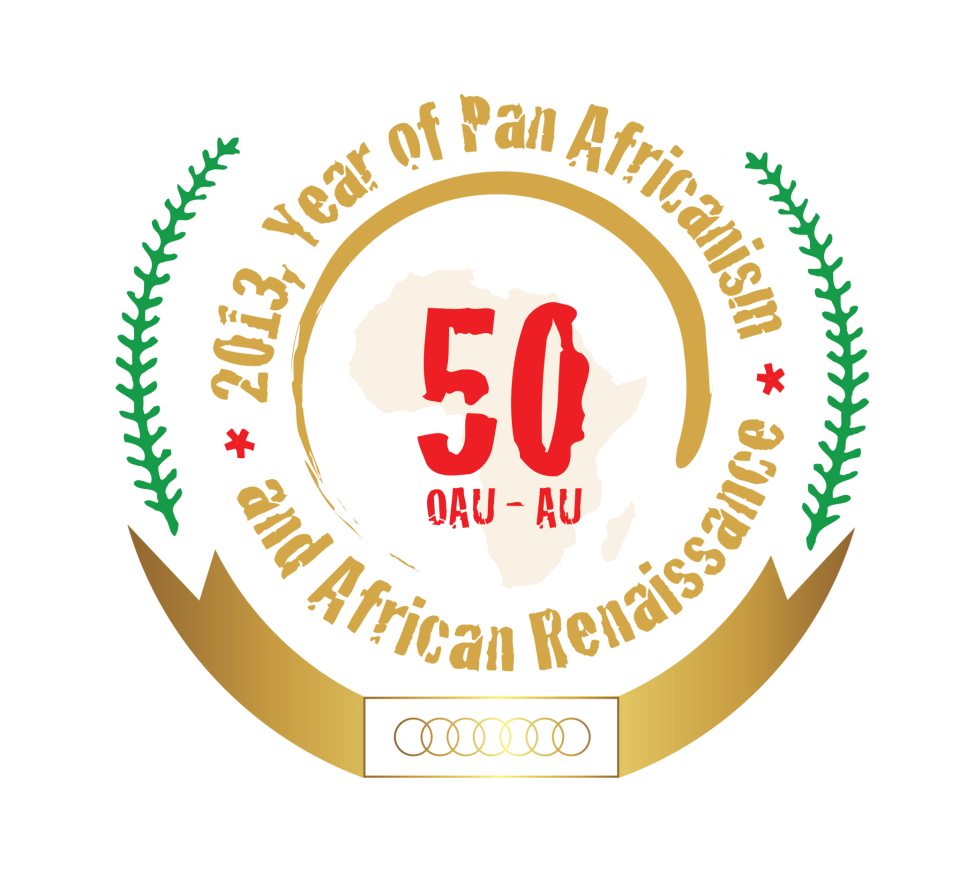
I have never really paid any attention to the African Union (AU) meetings. I have always thought of a group of African leaders meeting to make each other feel good, maybe display their wealth and make promises no one ever bothers to track or hold anyone accountable for. Guessing from asking around and listening to the news, I am not the only one who has these imaginings.
Again African presidents meet in Ethiopia for this year's AU meeting. What makes this different? Maybe the fact that the organization turns 50 will! It is time to take a serious look at the relevance of this organization fifty years on. Africa and the organization have come a long way indeed since Kwame Nkrumah of Ghana and a number of his compatriots birth the idea of the Organization of African Unity. By this time it is exceedingly clear that Africa may never become the United States of Africa. Agreeing the U.S. of Africa can only live in our fantasies, there are still some things that may be possible. Listening to radio yesterday, a lady made a very important point. She talked about the fact that young people where not represented in this organization.
It is hard to start to talk about the future of Africa without doing it from the lens of young people. Africa has now exceeded the one billion mark -- not a fantastic achievement, considering the landmass, birth rates and the increased levels of health care. What is fantastic is its demographic profile. Africa is the youngest continent. According to many reports, 70 percent of the continent's people are young people. A country like Kenya has a significant amount of its population below the age of 30! It is no wonder Kenya is fast becoming the hub of technology in Africa.
Young people mean young minds that can be innovative, a healthy workforce, more contribution to industry, less strain on the health sector, etc. As other countries will attest to, having an aging population does no good for the economy, or the health care system.
There is another side of the coin though; the massive elephant in the room that African leaders must begin to address -- the problem of education and unemployment. The failure of academia to match education to industry needs to be addressed.
According to World Bank report on Ghana, 60 percent of its youth are unemployed, though Ghana has one of the highest literacy rates on the continent. Many countries have failed to consider the changing demographics, globalization, the opportunities of foreign direct investments, etc. It is ironical therefore that despite Ghana being one of the fastest growing economies in the world, averaging 7 percent, Sosthenis, a graduate with two master's degree from the University of Ghana, has remained unemployed since his graduation. Sosthenis has a wife and two kids. His difficulty may partly be due to the gaps in his skill sets as perceived by Industry. Consequently, job interview upon interview, he is turned down. Imagine him, and then imagine more than half of the people you meet being like him or worse.
As industry struggles and grapples to meet human resource demands, and the gaps in skill sets, many young people wallow in the desert of unemployment.
Observers have described this situation as a ticking time bomb!
Over the weekend of May 25, critical issues of trade and regional integration as well as governance will be high on the agenda. ECOWAS and other regional bodies, and the laying of fiber optic cables to link many countries, have all showed clear benefits and the importance of this focus, but we must begin to ask ourselves how Africans will take advantage of the trade amongst nations and not abuse it. On the West Coast for instance, integration has lead to increased crime in Ghana as it opens its borders to its neighbors, ultimately raising tensions, which might then lead to tightening of regulations that counter regional integration!
Is this a house of cards?
Well-tuned education will fuel innovation and entrepreneurship, reduce unemployment, ensure the sustainability of economic growth and good governance and decrease corruption, as individuals see a clear path to self empowerment and economic independence. Lessons from Asian countries like Singapore may be timely. It invested in education and its people, with the clear understanding that it is "people, people, people!"
We have all seen the recent unfortunate weather disasters around the world lately. Imagine being in a house of cards when one comes your way.

